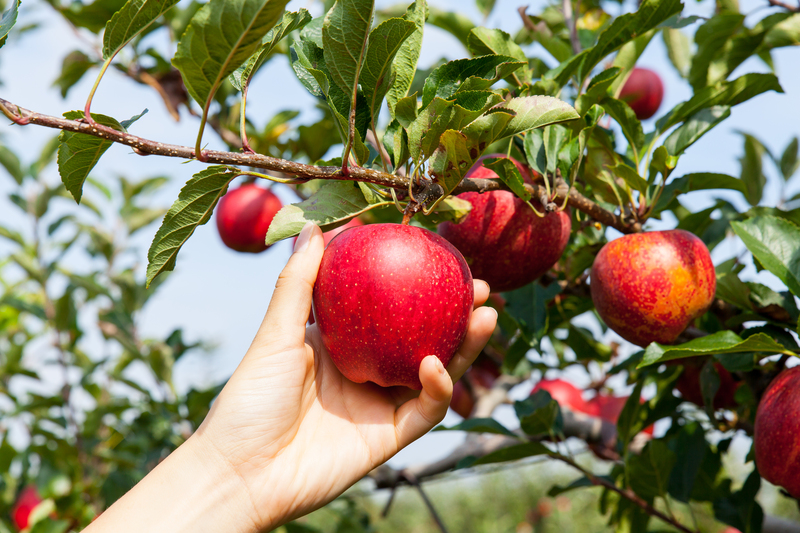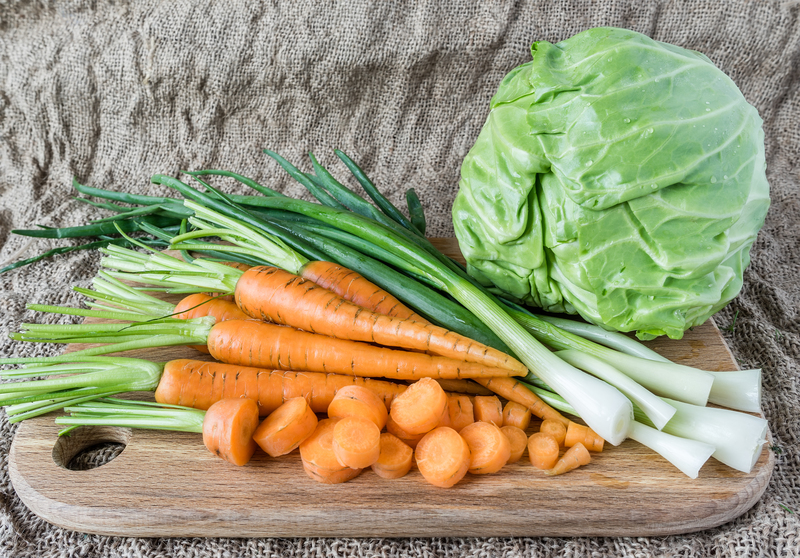3 Simple and Effective Tips for Managing Garden Weeds
Posted on 16/09/2025
3 Simple and Effective Tips for Managing Garden Weeds
Every gardener knows the struggle: just as your flowers and vegetables begin to flourish, so too do unwanted weeds. These persistent invaders not only compete for light, nutrients, and water but can also harbor pests and diseases. Fortunately, managing garden weeds doesn't have to be an endless battle. With some simple garden weed management strategies, you can keep your beds neat and thriving all season long. In this comprehensive guide, discover three proven tips for effective weed control, plus bonus advice to ensure your garden stays lush and weed-free.
Understanding Garden Weeds: Why Control is Critical
Before diving into weed management tips, it's important to understand why weeds are so troublesome. Weeds are fast-growing, resilient plants that compete aggressively with cultivated plants for vital resources like sunlight, nutrients, and water. Left unchecked, they can smother seedlings, disrupt plant growth, and affect crop yields and the appearance of your landscape.
Some weeds also harbor pests and diseases, making it harder to maintain a healthy, productive garden. That's why a strong focus on controlling and preventing garden weeds is not just about aesthetics, but also about ensuring the overall health of your entire garden ecosystem.

Tip 1: Use Mulch for Natural Weed Suppression
Why Mulch Works Wonders for Controlling Weeds
Mulching is perhaps the most effective and simple tip for managing garden weeds. A layer of organic or inorganic mulch acts as a physical barrier, preventing sunlight from reaching weed seeds. This means fewer weed seeds sprout, and those that do are often weakened by the mulch layer.
- Organic mulches include shredded bark, straw, grass clippings, compost, and leaves. These not only suppress weeds but also enrich soil as they decompose.
- Inorganic mulches like landscape fabric, black plastic, or decorative stone are long-lasting alternatives, especially useful in flower beds or pathways.
How to Apply Mulch Effectively
- Prepare the soil: Remove existing weeds and loosen the top layer of soil.
- Apply mulch generously: Spread a 2-4 inch layer around plants, being careful not to pile it directly against stems or trunks.
- Replenish as needed: Organic mulches decompose over time, so top up your mulch each season to maintain effectiveness.
Mulching is not only about weed suppression--it also conserves moisture, regulates soil temperature, and improves soil structure. By incorporating this easy weed management strategy, you create a healthier, lower-maintenance garden.
Tip 2: Hand Weeding & Hoeing: Classic and Effective
Hand Weeding: Old-Fashioned, Yet Incredibly Effective
Despite modern innovations, nothing quite replaces the effectiveness of hand-pulling weeds. This traditional approach works best when weeds are young and soil is moist. By removing the entire weed, roots and all, you prevent regrowth and stop seeds from spreading. Regular hand weeding is especially useful for garden beds and vegetable patches, where precision is key.
- Use the right tools: Invest in a quality hand fork, trowel, or dandelion weeder for stubborn roots.
- Weed after rain: Moist soil makes it easier to remove the entire root system.
- Dispose of weeds properly: Don't leave pulled weeds on the surface, as some can reroot or disgorge seeds.
Hoeing: A Quick Fix for Larger Areas
For managing garden weeds over larger areas, shallow hoeing is a fast and efficient method. Run a sharp hoe just below the soil's surface, severing weeds from their roots. This method is great for annual weeds, but be careful not to disturb perennial weed roots, which may resprout.
- Hoe when weeds are small: Young seedlings are easier to dislodge and less likely to regrow.
- Work on dry days: Cut weeds left on dry soil quickly shrivel and die, minimizing re-rooting risk.
Tip: Make hand weeding or hoeing a regular habit. Even 10 minutes a few times a week can prevent weed problems from escalating.
Tip 3: Prevent Weeds by Keeping Soil and Garden Healthy
Dense Planting is a Powerful Weed Deterrent
An often-overlooked way of managing weeds in the garden is simply to outcompete them! Dense planting leaves little room for weeds to take hold. Use ground covers, interplant closely, or stagger plantings to create continual cover.
- Choose fast-spreading ground covers (like creeping thyme, vinca, or clover) for borders and trouble spots.
- Succession planting: As soon as one crop finishes, plant a new one or use cover crops to reduce bare soil exposure.
Feed Your Soil, Not the Weeds
Fertilize your crops--not open spaces. Apply compost and organic fertilizers right at the base of your plants to avoid feeding weed seeds in nearby bare soil. Healthy, vigorous crops are better able to outgrow and shade out weeds.
Edge and Maintain Your Borders
- Regularly edge lawn and garden beds to keep creeping weeds like grass and bindweed at bay.
- Repair any mulch or landscape fabric gaps where sunlight and weed seeds can sneak through.
Bonus Tips & Best Practices for Controlling Garden Weeds
- Water wisely: Use soaker hoses or drip irrigation to deliver water right to your plants' roots, instead of broadcasting it to weed seedlings.
- Inspect regularly: Walk your garden weekly to spot and remove new weeds before they mature and produce seeds.
- Avoid "weed & feed" combos: Opt instead for targeted, eco-friendly spot treatments if you must use herbicides (never in vegetable plots).
- Rotate crops annually: This disrupts the life cycles of weed species that thrive on routine planting.
- Encourage healthy soil life: Beneficial microorganisms help keep weed seeds from germinating and aid your plants in outgrowing any competition.

Frequently Asked Questions About Weed Management in Gardens
- What are the most common garden weeds?
Dandelions, crabgrass, bindweed, chickweed, and purslane are notorious troublemakers in home gardens. Each type has unique habits and control strategies. - What is the best time to remove weeds?
The best time is when weeds are small and the soil is moist--typically after rain. Young weeds are easier to pull and less established. - Can I add pulled weeds to compost?
Only compost weeds that haven't set seed or are free from disease. Hot composting is best to ensure seeds and roots are destroyed. - Are there any natural ways to kill weeds?
Boiling water, vinegar solutions, and covering with newspaper or cardboard can suppress and kill weeds without harsh chemicals, especially in small problem patches.
Conclusion: Stay Ahead with Simple, Effective Weed Management
Controlling weeds in the garden doesn't have to be overwhelming. Start with these three simple and effective strategies: mulch your beds, weed by hand or hoe regularly, and promote healthy, dense planting. Combine them with vigilant care and the bonus tips above, and you'll spend less time pulling weeds and more time enjoying your flourishing garden.
By adopting these strategies for managing garden weeds, you can nurture a vibrant, thriving space that's as easy on the eyes as it is to maintain. Remember, consistency and observation are your best defenses--make weed control a part of your gardening routine, and your plants will thank you with a beautiful display all season long.
Are you ready to transform your landscape and put these tips into practice? Share your experiences, ask questions, or let us hear your favorite garden weed management tricks in the comments below!
Latest Posts
The Eco-Benefits of Climate-Conscious Gardening
Finding the Beginning of Your Garden Restoration
3 Simple and Effective Tips for Managing Garden Weeds
Curate the Perfect Garden Vibes with Thoughtful Seating
Embark on Your Gardening Adventure: 9 Tips for the Uninitiated



